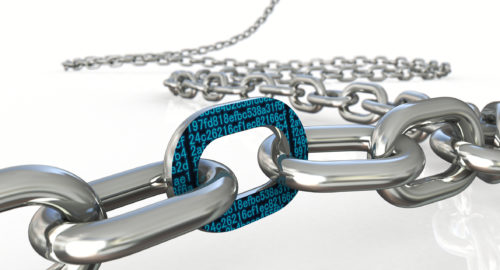
Blockchain in Energy: Powered by EWF
Energy Web Foundation (EWF) is proud to announce the release of our organization’s open-source blockchain. Blockchains are distributed public databases that securely record digital transactions without a central clearinghouse, and are best known from digital currencies like Bitcoin. The code and client for Tobalaba, EWF’s test network, were published today, allowing the public to begin experimenting on the blockchain. The client released today is the fastest, lightest, and most advanced of its kind, and is currently the only open-source blockchain tuned to the needs of the energy sector. Tobalaba is named after a metro station in Chile (that aims to run on 60 percent renewable energy) in keeping with the naming convention for test networks on the Ethereum platform (e.g., Morden, Kovan).
One month after its first release, Tobalaba is now accessible by third parties. Startups and developers can create tokens and start using the most advanced network of its kind to develop their decentralized apps. Tokens are digital assets; transferring ownership of tokens is recorded on a blockchain. Decentralized apps use the blockchain and its tokens to perform specific transactions, like exchanging a cryptocurrency or compensating energy services.
The EWF is taking an agile and incremental approach to its platform, and all developments will be applied to address the specific needs of users. This way, the network will evolve based on the feedback received by startups and developers, benefiting from fluid communication regarding technical requirements and features present in the network.
Powered by EWF
Dozens of companies, ranging from startups like Grid+ and Share & Charge to large utilities like Enel (via Ponton’s “Enerchain” wholesale trading platform), are experimenting with different applications of blockchain technology in the energy sector. These and other blockchain-based projects run at the application level atop existing blockchain platforms. We intend for EWF’s platform—a blockchain specifically designed for energy market participants and transactions—to serve as a faster, more robust base layer than existing blockchains. As the ecosystem of blockchain players grows, we envision hundreds, if not thousands, of decentralized third-party applications running side-by-side globally—all powered by EWF’s platform.
Today, companies use a variety of blockchain-based platforms. Share & Charge, for example, runs its application on the public Ethereum network, while Enerchain uses the tendermint blockchain. These blockchains, among the many in existence, vary in their level of decentralization, scalability, confidentiality, and selection of software license. To maximize support for the widest variety of applications and business models in the energy sector, the EWF platform:
- Is decentralized and allows anyone to participate, but relies on whitelisted “authorities” to secure and validate transactions on the network
- Is scalable, currently capable of 2,500 transactions per second on Tobalaba and ultimately capable of enabling millions of transactions per second via the embedding of the Raiden Network
- Is capable of confidentiality, via a unique approach to “compliant confidentiality,” as described below
- Is open-source, enabling anyone to use or build new apps on top of it
Blockchain for the Energy Sector, by the Energy Sector
EWF is a global nonprofit organization focused on accelerating blockchain technology across the energy sector. The EWF platform (including the Tobalaba test network) is the product of cooperation between our technology partners—Parity Technologies, Slock.it, Grid Singularity, and Brainbot Technologies—and EWF affiliates, which include electricity market participants from across the globe.
The EWF test network is purpose-built to support a wide range of decentralized applications in the energy sector, as evidenced by the platform’s unique network topology. Any party can download the EWF client and submit transactions or write smart contracts on the Tobalaba network, but only designated authorities (e.g., EWF’s electricity market affiliates) are given permission to validate transactions using a proof-of-authority consensus engine. This topology, where whitelisted validators maintain a network in which anyone can participate, allows EWF to host a wide variety of applications and business models, including regulated applications. Other public blockchains like Bitcoin cannot handle regulated applications because the identities of key participants, such as Bitcoin “miners,” are unknown.
The following unique features are currently available on the EWF platform:
- Authority whitelisting: authorities on Tobalaba can whitelist network participants and transaction types. This includes both whitelisted simple transactions between peers, and smart contracts. Under this structure, authorities can set requirements for their service area, enabling, for example, a utility to require certain data and/or security standards to be met in order for users to participate in the network.
- Simple deployment scripts: scripts will be available on Github for developers to establish complex development environments (new builds will regularly be included on Github by EWF).
- Compliant confidentiality: Tobalaba is being released with a feature brand-new to the blockchain world that we call “secret contracts.” With this feature, authorities and users can choose to make smart contracts and transaction data truly private via inbuilt encryption, with state transition of contracts only available for some selected parties. In practice, this means that—as in bricks-and-mortar markets—a contract may be entered into confidentially while allowing organizations on the blockchain (e.g., regulators) to check the validity of a transaction under the contract.
The Path Forward
Tobalaba’s public release is just the starting point for the EWF platform. Over the coming months, EWF will be releasing open-source updates alongside educational material on GitHub, the EWF wiki, and our website. All updates and additional features are designed to enable greater blockchain functionality in the energy sector in advance of the EWF platform official launch, tentatively planned for the first half of 2019. We believe the platform is capable of solving the issues of data ownership, privacy, and vendor lock-in in the blockchain and energy space, and we look forward to growing it alongside the global energy community in support of decentralized applications everywhere.
To download the EWF client, please visit GitHub; to see real-time data and observe the performance of Tobalaba, please visit the test network page here.